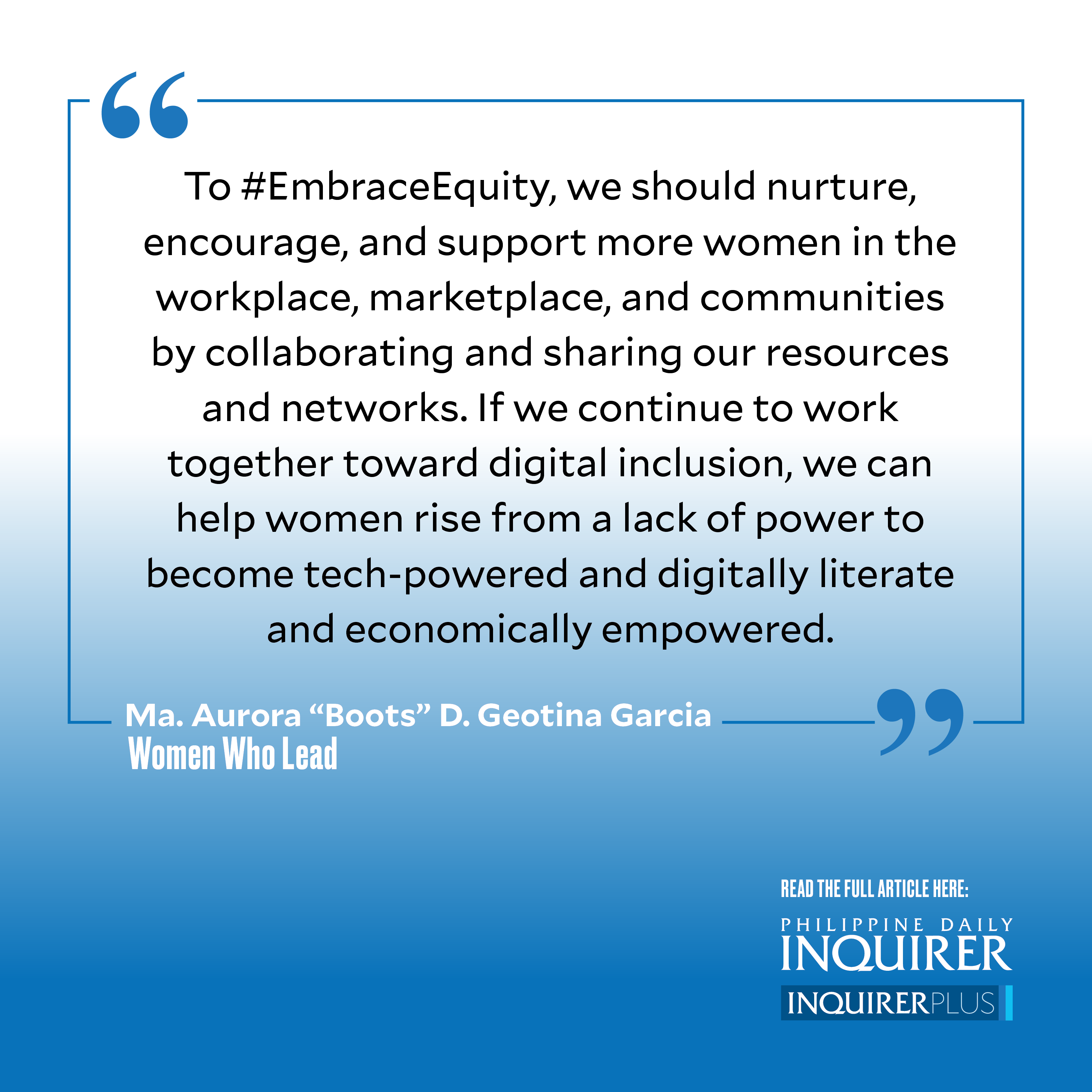Bridging the digital gender divide

As the entire world comes together on March 8 to celebrate International Women’s Day (IWD), we are presented with several themes which can be a bit confusing. #EmbraceEquity, the theme of the IWD organization shares a broader message—envisioning a world that’s diverse, equitable, and inclusive. On the other hand, the United Nations’ (UN) talks about an urgent and specific concern. “DigitALL: Innovation and technology for gender equality,” which is aligned with the priority theme for the upcoming 67th Session of the Commission on the Status of Women (CSW 67), “Innovation and technological change, and education in the digital age for achieving gender equality and the empowerment of all women and girls.”
Rather than view these as conflicting messages, I will use it as opportunity to create a stronger message for our values in Philippine Women’s Economic Network (PhilWEN): to work together instead of competing against each other. To “walk the talk” and represent collaboration, diversity, and inclusion in every aspect of the organization—its composition, decision-making process, programs, and even in governance.
As a coalition of women’s business and advocacy groups, we clearly see that technology is shaping our future and transforming our economies. Thus, we need to work toward accessibility and inclusivity of technology, which combines the two themes of IWD and UN Women.
Last month, I had the privilege of speaking at the Asia-Pacific Regional Consultation on the priority theme for the 67th session of the CSW 67. It was a productive and collaborative process, which gives me confidence that our shared goal is within our reach—as long as we work together.
Allow me to share some thoughts I shared during the consultation.
In the Asean Through A Gender Lens policy paper—a publication published by PhilWEN (as the designated project lead of the Asean Women Entrepreneurs Network), we specifically recommended the creation of education programs for women: apprenticeships and ICT upskilling to close the digital gender gap. We highlighted the importance of adequate representation of women in both public and private spheres in order for women’s concerns to be recognized. It is through this that policy initiatives and wide-reaching networks can be formed.
As for best practices, I shared about Asean Access—an online portal, which serves as the first port of call for Asean small- and medium-sized enterprises and other businesses for information on trade and market access in Asean. The Department of Trade and Industry, as the national focal point of Asean Access, formally designated PhilWEN as network partner to lead initiatives and carry out activities under Asean Access. Our institutions share the same objective of supporting micro, small, and medium enterprises by providing them the platform and resources to expand their network in the region and the rest of the world. This is one of the examples that makes good use of digital technology for women, and we committed to encourage more women entrepreneurs to participate.
We can do so much more. As I said during the consultation: It is time to have an “all hands on deck” strategy—where all institutions and organizations recognize and take on the responsibility to create an environment where women can benefit from technology and achieve their greatest potential.
To #EmbraceEquity, we should nurture, encourage, and support more women in the workplace, marketplace, and communities by collaborating and sharing our resources and networks. If we continue to work together toward digital inclusion, we can help women rise from a lack of power to become tech-powered and digitally literate and economically empowered.
——————
Ma. Aurora “Boots” D. Geotina Garcia is founding chair and president of PhilWEN, cochair of the Philippine Business Coalition for Women Empowerment, and co-convenor of Champions of Change Philippines.
——————
Women Who Lead is an initiative of PhilWEN.
















